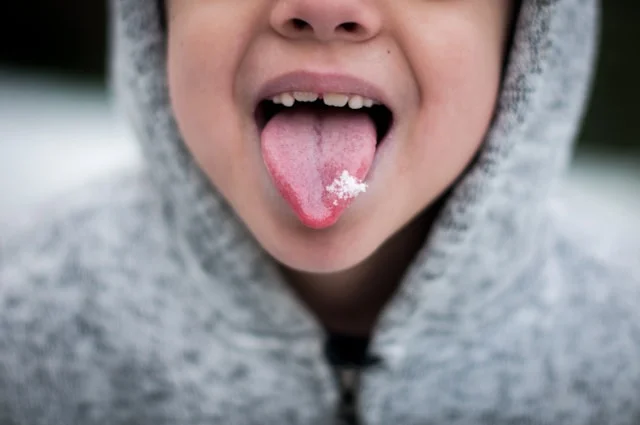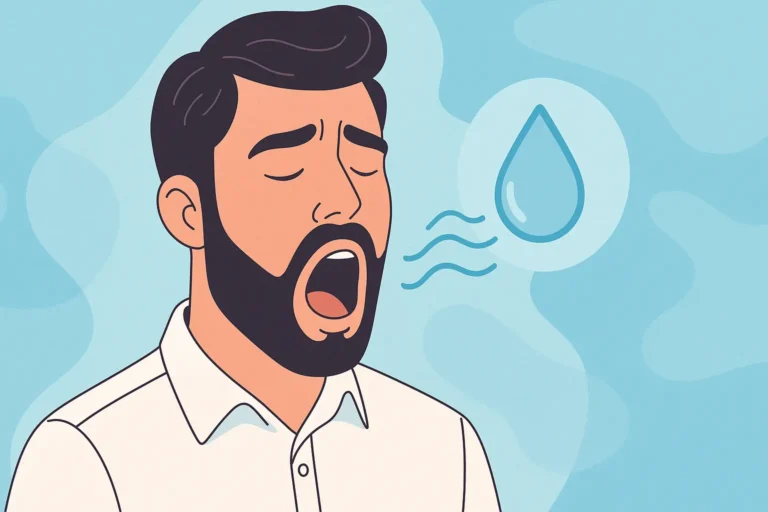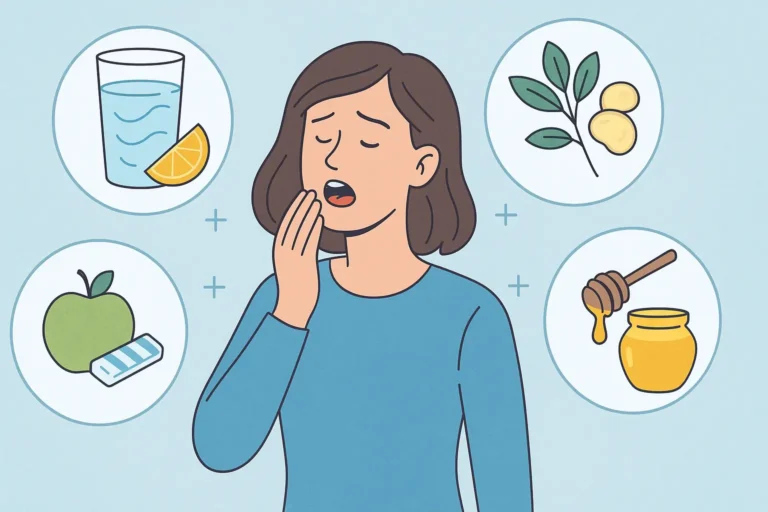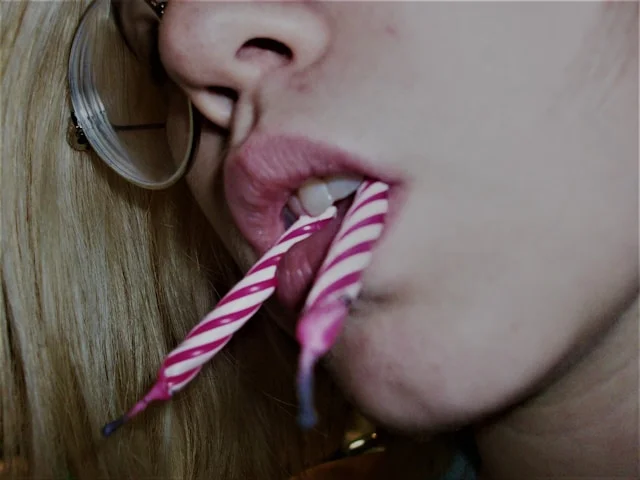How to Deal with Dry Mouth?
Dry mouth is one of those things that sounds small but feels huge when you are going through it. I know how annoying and uncomfortable it can be. You keep drinking water, but your mouth still feels like a desert. Eating becomes hard, talking is painful, and even sleeping gets disturbed. Many times, people around you don’t even understand how tough it is. If you are here, you are probably tired of that sticky, dry feeling in your mouth and just want to know what you can do about it.
The good news is there are many ways to deal with dry mouth. You don’t have to live with that sticky, burning feeling forever. In this post, I am going to explain everything you need to know in simple words.
What Is Dry Mouth?
Dry mouth means your mouth doesn’t make enough saliva. Saliva is the watery stuff in your mouth that helps you chew, swallow, and even talk properly. It also protects your teeth from cavities. When you don’t have enough of it, your mouth feels dry, sticky, or even sore. Some people also feel a burning feeling on their tongue.
Dry mouth is also called “xerostomia” by doctors, but honestly, you don’t even need to remember that word. It’s just dry mouth, plain and simple.
Why Does Dry Mouth Happen?
There are many reasons your mouth can get dry. Sometimes it’s easy to fix, sometimes it’s because of a health issue that needs more care. Let’s look at some common reasons:
| Reason | Simple Explanation |
|---|---|
| Medicines | Some medicines cause dry mouth as a side effect (like allergy pills, blood pressure pills, and antidepressants). |
| Health Problems | Diabetes, stroke, and other diseases can cause dry mouth. |
| Dehydration | Not drinking enough water. |
| Smoking or Drinking Alcohol | These dry out your mouth badly. |
| Stress or Anxiety | Being nervous or stressed can make your mouth dry. |
| Mouth Breathing | Breathing through your mouth instead of your nose, especially while sleeping. |
If you know why your mouth is dry, it becomes easier to fix it.
How Do I Know If I Have Dry Mouth?
It’s not just about feeling thirsty. Here are some signs that point to dry mouth:
- Sticky feeling inside your mouth
- Trouble chewing, swallowing, or even talking
- Dry or sore throat
- Cracked lips
- Bad breath
- Dry, rough tongue
- Mouth sores
- Your dentures (if you wear them) don’t fit right
If you notice two or three of these happening daily, you are likely dealing with dry mouth.
How Serious Is Dry Mouth?
Dry mouth may sound harmless, but if you leave it untreated, it can cause bigger problems. You could get more cavities because saliva protects your teeth. You might find it harder to eat healthy foods like fruits and veggies because they are harder to chew without saliva. You might also get mouth infections.
That’s why it’s important to take dry mouth seriously and do something about it instead of thinking it’s just a small thing.
What Can I Do Right Now to Help Dry Mouth?
When your mouth is super dry, you want something that gives quick relief. Here are a few things you can do right now:
- Sip water often. Carry a water bottle with you everywhere.
- Chew sugar-free gum or suck on sugar-free candy to help make more saliva.
- Breathe through your nose, not your mouth.
- Avoid caffeine, alcohol, and tobacco. They dry your mouth even more.
- Use a humidifier at night. It adds moisture to the air and helps you breathe better.
- Avoid spicy or salty foods, as they can make your mouth burn.
These steps are simple but they really work if you stick to them.
Should I See a Doctor for Dry Mouth?
If your dry mouth is not getting better even after trying home tips, it’s a good idea to see a doctor. Especially if you:
- Find it hard to swallow food
- Have frequent mouth infections
- Notice your teeth are getting more cavities
- Feel a burning sensation that gets worse
A doctor can check if it’s because of a medicine you are taking or another health issue. Sometimes changing your medicine or adding another treatment can fix the problem.
What Treatments Are Available for Dry Mouth?
If home care doesn’t work, doctors may suggest:
| Treatment | What It Means |
|---|---|
| Saliva substitutes | These are sprays or gels you can put in your mouth to act like saliva. |
| Prescription medicines | Some medicines help your body make more saliva. |
| Treating the main cause | If diabetes or another disease is causing it, treating that disease will help dry mouth too. |
You might not need heavy treatment if your dry mouth is mild, but it’s good to know what options are there.
How to Keep Your Mouth Moist Throughout the Day?
Keeping your mouth moist is not just about drinking water. Here are some easy ways you can add moisture all day:
- Keep sugar-free lozenges handy.
- Eat foods with high water content like cucumber, watermelon, and oranges.
- Use mouthwashes that are alcohol-free (alcohol dries your mouth more).
- Apply lip balm to keep your lips from cracking.
- Sip warm herbal teas without caffeine.
- Avoid dry, hard-to-chew foods like crackers and toast unless you dip them in something.
Little habits like these, done daily, can make a big difference.
Tips to Manage Dry Mouth Every Day
Here are some more practical tips that I have seen helping a lot of people:
- Always have a water bottle with you, even at work or when going outside.
- Keep a humidifier in your bedroom and turn it on at night.
- Brush your teeth twice a day and floss once a day to avoid tooth decay.
- Visit your dentist regularly and tell them you have dry mouth. They can give special care tips.
- Choose soft foods that are easier to chew and swallow.
- Stay away from alcohol-based mouthwashes. They will make things worse.
- Limit salty and spicy foods if your mouth feels sore.
Making these things part of your routine can give you a lot of comfort.
Can Food Help With Dry Mouth?
Yes, some foods are better for dry mouth. Here’s a quick look:
| Foods to Eat | Foods to Avoid |
|---|---|
| Watermelon, cucumbers, oranges | Salty chips, spicy foods |
| Soft cheeses, yogurt | Dry breads, crackers |
| Soups and broths | Alcoholic drinks, sodas |
Eating moist, soft foods helps because they are easier to chew and swallow without much saliva. Plus, they feel more soothing in your mouth.
What Questions Do People Have About Dry Mouth?
Is Dry Mouth a Sign of Something Serious?
Sometimes, yes. It can be a sign of diseases like diabetes or Sjogren’s syndrome. But often, it’s caused by medicines or simple dehydration. If you are worried, it’s better to check with a doctor.
Can Dry Mouth Be Cured?
If it’s caused by something like dehydration or medicines, it can often be managed and even cured. If it’s because of a disease, you might have to manage it long-term, but you can still live comfortably.
How Long Does It Take to Get Better?
It depends on the cause. If you start drinking more water and following the tips, you might feel better in a few days. If a health condition is behind it, it might take longer, but you will still feel improvements with good care.
Conclusion
Living with dry mouth is not easy. It affects your eating, speaking, sleeping, and even how confident you feel around others. But you don’t have to just “deal with it” quietly. You can take small but strong steps to make your mouth feel better. Simple changes like sipping water often, chewing sugar-free gum, using a humidifier, and avoiding alcohol-based mouthwashes can bring you a lot of relief. And if things don’t get better, seeing a doctor is the smartest thing to do. Don’t ignore dry mouth. Take care of it so you can feel more comfortable, happy, and healthy every day.
If you have any questions about dry mouth or want to share your experience, feel free to leave a comment. I would love to hear from you.







